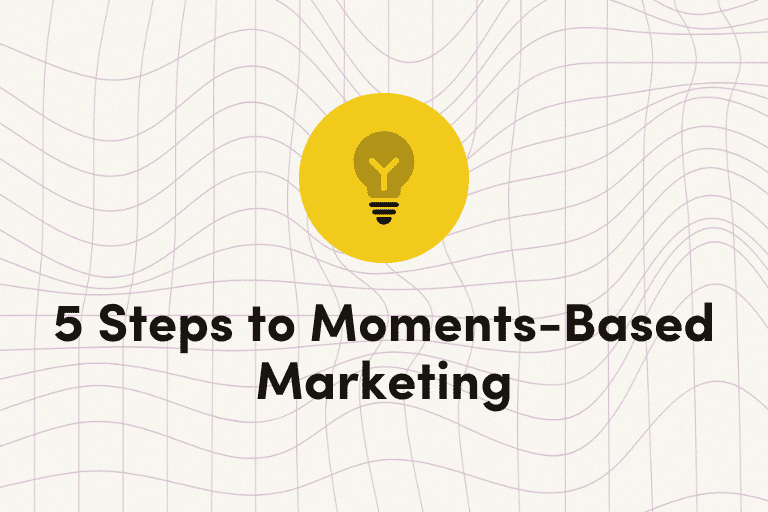Today, we’re diving deep into the world of Iterable System Webhooks—a game-changer for marketers and developers alike. If you’re looking to supercharge your campaigns and take your marketing automation to the next level, then you’re in the right place.
So, what exactly are Iterable System Webhooks, and how can they revolutionize your marketing efforts? Let’s break it down.
What are Iterable System Webhooks?
Iterable System Webhooks are like the secret sauce of your marketing automation strategy. They allow you to seamlessly integrate external systems and applications with Iterable, enabling real-time data synchronization and automation.
In simpler terms, these webhooks let you connect your Iterable account with other tools and platforms, so you can share data, trigger actions, and automate processes—all without lifting a finger.
How Do They Work?
Imagine you’re running an e-commerce store, and you want to send a personalized email to customers who’ve abandoned their shopping carts. With Iterable System Webhooks, you can set up a trigger that automatically sends an email whenever a customer abandons their cart.
Here’s how it works:
- Trigger: A customer abandons their cart on your e-commerce website.
- Webhook: Detects the abandoned cart event.
- Action: Iterable sends a personalized email to the customer, reminding them to complete their purchase.
The best part? It all happens in real-time, so you can engage with your customers when they’re most receptive.
Why Both Marketers and Software Engineers Should Care
Iterable System Webhooks offer a host of benefits for both marketers and software engineers. Here’s why you should care:
For Marketers:
- Real-time data sync: With webhooks, you get real-time insights that you can act on immediately.
- Personalized campaigns: Leverage real-time data to create hyper-targeted, personalized campaigns that resonate with your audience.
- Improved ROI: By delivering more targeted, relevant campaigns, Iterable System Webhooks can help you drive better results and improve your ROI.
For Software Engineers:
- Seamless integration: Webhooks make it easy to integrate external systems and applications with Iterable, thanks to a simple, developer-friendly API.
- Automation: Automate repetitive tasks and processes, so you can focus on more important things—like building awesome new features.
- Scalability: Whether you’re processing hundreds or millions of events, Iterable System Webhooks can handle the load, ensuring your data is always up-to-date and accurate.
How Can Iterable System Webhooks Supercharge Your Campaigns?
Let’s take a look at a few ways Iterable System Webhooks can take your marketing campaigns to the next level.
1. Personalized Experiences
We all know personalization is key. No one likes getting—or sending—generic marketing messages. With webhooks, you can create highly personalized, targeted campaigns based on real-time customer data. Whether it’s a welcome email for new sign-ups or a targeted offer for abandoned carts, Iterable System Webhooks allow you to deliver the right message, to the right person, at the right time.
2. Improved Engagement
By leveraging real-time data, you can engage with your audience when they’re most receptive. Whether it’s a push notification, SMS/MMS message, or email, Iterable System Webhooks allow you to reach your customers on their preferred channel, at the optimal time.
3. Enhanced Automation
Say goodbye to manual data entry and repetitive tasks. With Iterable System Webhooks, you can automate processes and workflows, so you can focus on more important things—like crafting killer marketing campaigns.
4. Better Collaboration
Iterable System Webhooks make it easy to share data between different systems and applications, fostering collaboration across your organization. Whether you’re syncing data between your CRM and email marketing platform or integrating with third-party analytics tools, these webhooks ensure everyone has access to the information they need, when they need it.
Getting Started with Iterable System Webhooks
Ready to harness the power of Iterable System Webhooks for your own marketing campaigns? Here’s how to get started:
1. Set Up Your Webhooks
First things first, you’ll need to set up your Iterable System Webhooks. Don’t worry, it’s easier than it sounds. Just head to the Iterable platform, navigate to the Webhooks section, and follow the simple setup instructions.
2. Define Your Triggers
Next, you’ll need to define the events that will trigger your Webhooks. Think about the key actions you want to track—like purchases, sign-ups, or abandoned carts—and set up your triggers accordingly.
3. Customize Your Campaigns
Once your Webhooks are up and running, it’s time to put that real-time data to work. Use the insights you gather to create personalized, targeted campaigns that resonate with your audience.
4. Measure and Optimize
Finally, don’t forget to measure your results and optimize your campaigns accordingly. Pay attention to what’s working (and what’s not), and use that data to refine your approach over time.
Keeping it Real-Time
Iterable System Webhooks are a game-changer for marketers and software engineers alike, providing real-time data synchronization and automation that can supercharge your campaigns and drive better results. Whether you’re looking to boost engagement, improve ROI, or just make your life a little easier, Iterable System Webhooks have got you covered.
So what are you waiting for? Give them a try and see the difference for yourself. Your marketing campaigns—and your developers—will thank you!
Ready to get started? Schedule a demo to see what Iterable System Webhooks can do for you.

































